
This week, we look at a cross-industry shift toward integrated automation, domestic resilience, and a critical focus on the human talent pipeline.

This week, we look at a cross-industry shift toward integrated automation, domestic resilience, and a critical focus on the human talent pipeline.

Marcio Temtem, vice president, Strategic Business Management, Hovione, addresses molecule complexity, speed, and regionalization via integrated manufacturing.

Oncologist Dr. Maria de Miguel, MD, PhD, MBA, Director, Clinical Research for START Rioja, spoke with PharmTech about the importance of STEM education in early phase drug development.

Strategic outsourcing utilizes external expertise to accelerate the biopharma pipeline, integrating specialized workflows that drive efficiency from discovery through early clinical trials.

PharmTech spoke with Elisabeth Gardiner, chief scientific officer at Tevard Biosciences, about how hands-on, early exposure to STEM fields can demystify complex concepts.

Walid Kamoun, PhD, and Alex Philippidis discuss AI’s Power to Lower Costs while Elucidating Tumor Progression, NVIDIA and Eli Lily’s Deal, and Revolution Medicine’s lack of a Deal.

Anthony Lakavage, executive vice president and head of Global External Affairs at USP, talks about how sustainability efforts are more than just protecting the environment and how pharmaceopeias are participating in the endeavor.

This week's coverage discusses the M&A report, $50B+ investments, automated cell therapy, vaccine approvals, and risks from the US leaving the WHO.
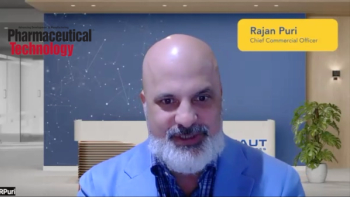
In a 2026 industry outlook interview, Raj Puri explains balancing speed with the financial and regulatory risks of accelerated drug launches via alignment.
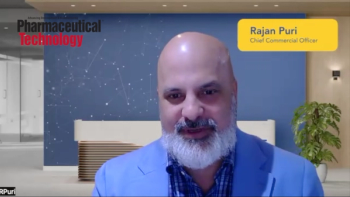
In a 2026 industry outlook interview, Raj Puri discusses how the tariffs hinder US pharma investment but drive demand for geographically segregated supply chains.
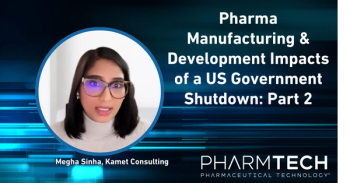
With a potential US government shutdown looming, Megha Sinha, Kamet Consulting, says to treat FDA disruptions as predictable risks by protecting milestones and early readiness.
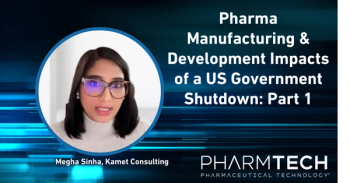
With a potential US government shutdown looming, Megha Sinha, Kamet Consulting, discusses the impacts on pharma manufacturing and development.
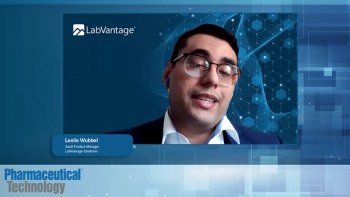
LabVantage is advancing software as a service (SaaS) for the laboratory information management system (LIMS) market to provide laboratories with reduced costs and pre-validated solutions that facilitate scalability and faster speed-to-market for pharmaceuticals

In a 2026 industry outlook interview, Laine Mello, Ecolab Life Sciences, explains how next-gen therapies, digitalization, and partnerships drive pharma agility.

This week's coverage discusses pharma advances in sustainable packaging and digital standards amid trade risks from Greenland tariffs and falling workforce morale

In a 2026 industry outlook interview, Laine Mello, Ecolab Life Sciences, details how AI and Pharma 4.0 speed up discovery and production while navigating industry hurdles

Susan J. Schniepp, distinguished fellow at Regulatory Compliance Associates, a Nelson Labs company, and Siegfried Schmitt, PhD, vice president, Technical at Parexel, discuss how involving procurement early on in drug development can ensure a quality product.

PharmTech spoke with Dexter Tjoa, CEO of Tjoapack, about how outside pressures are influencing supply chain and packaging decisions.

PharmTech spoke with Dexter Tjoa, CEO of Tjoapack, about the past year and which trends might influence 2026 packaging decisions.

The week’s coverage discusses leveraging agentic AI, sustainability, and resilient supply chains to transform global drug development and safety.
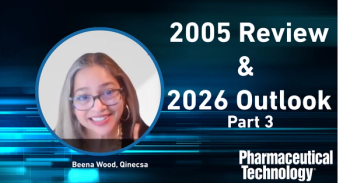
Beena Wood, Qinecsa, outlines how proactive PV, translational safety, AI foundations, and ecosystem collaboration will reshape drug safety in 2026.
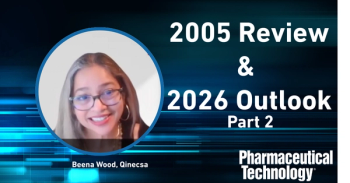
Beena Wood, Qinecsa, explains how AI could revolutionize pharmacovigilance, if data, trust, skills, and organizational barriers are addressed first.

Dr. Jennifer Levin Carter, founder and CEO of Medzown, discusses what makes precision medicine different from personalized medicine and what how challenges faced in this evolving field can be overcome.
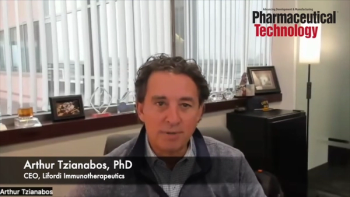
Arthur Tzianabos, CEO, Lifordi Immunotherapeutics, spoke with PharmTech about the company’s immune-directed antibody-drug conjugate (ADC) strategy, the benefits of VISTA-targeted ADCs in drug delivery, and Lifordi’s plans at the JP Morgan Healthcare Conference.
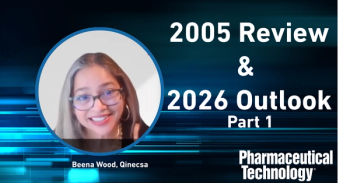
Beena Wood, Qinecsa, saw 2025 as an AI superposition in which pharmacovigilence needed better data foundations and regulation.

Nina Moreno, Nelson Labs, explains how rapid sterility testing is reshaping pharmaceutical quality control—cutting release times, improving objectivity, and gaining regulatory momentum.
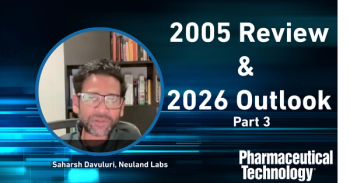
Saharsh Davuluri, Neuland Labs, urges API and peptide automation by 2026 to match modern biologics standards.
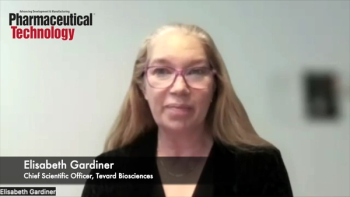
Elisabeth Gardiner, CSO of Tevard Biosciences, discusses how transfer RNA is impacting the development of gene therapies for diseases with unmet needs.

In Episode 31, industry veteran Deborah Dunsire goes behind the headlines to discuss the current state of innovation and evolving drug development landscape.

Mike Stenberg, LGM Pharma, explains how faster FDA approvals under CNPV shift bottlenecks to production, requiring onshoring and earlier supply chain risk.